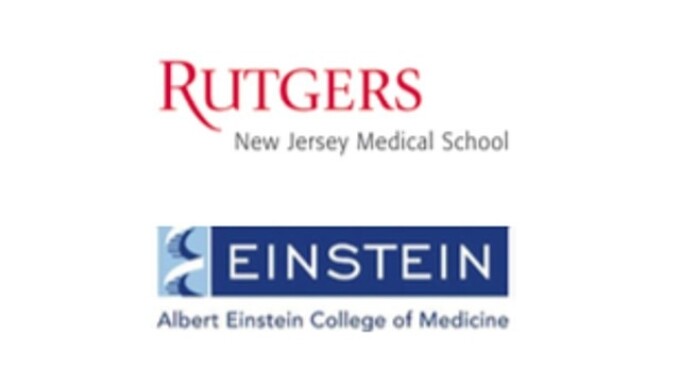ORLANDO, Fla. — CarraShield Labs, Inc. reported today that Rutgers University New Jersey Medical School and Albert Einstein College of Medicine are performing a National Cancer Institute-funded study on blocking the transmission of the human papillomavirus (HPV) from person to person using Divine 9 personal lubricant.
Divine 9 is made with a formulation of natural seaweed extracts called CarraShield. According to the company, Divine 9 with CarraShield has been shown in previous in vitro (laboratory) and in vivo (mouse) studies conducted by the National Cancer Institute to act as an HPV blocking agent.
Funded through a grant by the National Cancer Institute, the Rutgers and Einstein study is a combined clinical trial and translational research project to determine if CarraShield protects against HPV. One hundred sexually active women are being recruited and then are randomly assigned to receive either Divine 9 with CarraShield as a blocking agent or an ordinary personal lubricant as a placebo. Both the Divine 9 and placebo lubricants are packaged in single-use applicators. The women are asked to use an applicator before, during or within 12 hours after a sexual encounter. Each participant is tested monthly for a wide range of HPV types to determine if CarraShield is able to protect against acquiring new HPV infections.
The principal investigator for the study is Dr. Mark Einstein, Chair of the Department of OB/GYN & Women’s Health and Assistant Dean of the Clinical Research Unit at Rutgers New Jersey Medical School. In 2015, Dr. Einstein launched the initial study on CarraShield at the Albert Einstein College of Medicine (AECOM) in conjunction with the Montefiore Medical Center in New York City. Dr. Einstein is collaborating with a group of experts from AECOM including Robert Burk, M.D., Vice Chair for Translational Research and Professor of Pediatrics, and Professor of Microbiology & Immunology, of Obstetrics & Gynecology and Women’s Health, and of Epidemiology & Population Health. Dr. Burk is an expert on detecting and characterizing HPV in clinical samples.
According to the World Health Organization (WHO), HPV is the cause of essentially all cervical cancers (>99 percent) and cervical cancer is the second most common cancer in women worldwide by age-standardized incidence rate. More than 85 percent of cervical cancer deaths are in developing countries, where it accounts for 13 percent of all female cancers. WHO also estimates that HPV causes 90 percent of anal cancer cases. In a separate study on HPV and throat cancer, AECOM found that the presence of an HPV type in the mouth increases the odds of developing head and neck cancer by 22 times. HPV is also the underlying cause of all genital warts.
Current approaches to HPV prevention have limitations. Most adults are not able to benefit because they are approved only for those aged 26 and younger. The vaccines can also be too expensive for widespread distribution in developing countries.
“People around the world need an accessible and affordable way to protect themselves from the misery and heartache that HPV infections can cause,” said Dean Fresonke, CEO of CarraShield Labs. “With a successful outcome from this study, we will have made significant progress toward an entirely new approach to helping prevent cervical cancer, genital warts and the other health issues caused by HPV.”
For more information, contact Jeff Hawkins at (310) 720-0215 or via email at jeff@carrashieldlabs.com.








